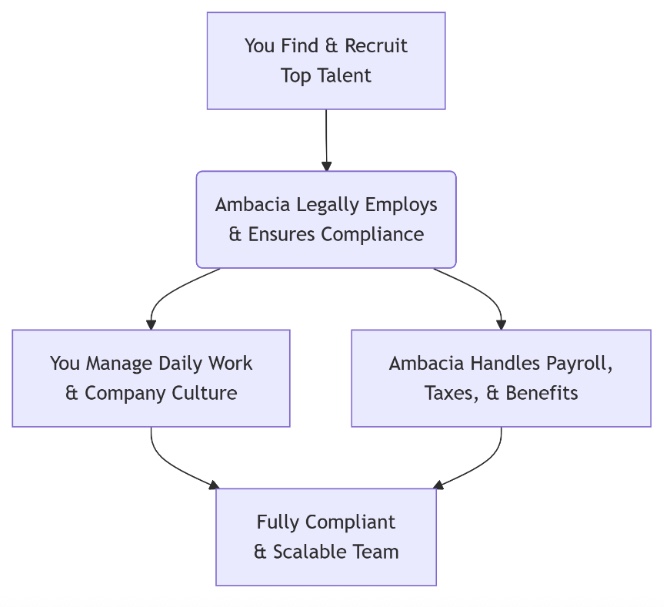The hype surrounding Artificial Intelligence (AI) has moved beyond the tech sector and is now an inescapable item on every business agenda.
While some of this is industry hype, for the Employer of Record (EOR) sector, this is not just noise – it’s the sound of a massive efficiency and risk control upgrade.
EOR is, by nature, a business of scale and complexity. Managing payroll, benefits, and compliance for talent across different countries involves a staggering amount of detailed, repetitive, and high-risk administrative work. This reality is precisely why AI is moving from an optional tool to an indispensable strategic requirement for modern EOR operations.

Here is how the implementation of advanced AI transforms the EOR service model:
Zero-error payroll: driving administrative precision
AI’s most immediate operational impact is reducing the heavy administrative workload that comes with global EOR management.
- Automation of data processing: Advanced intelligent systems automatically verify, process, and migrate complex data (including regional taxes, work hours, and benefits deductions) into payroll platforms. This functionality virtually eliminates the risk of human error in payment processing, which is a primary cause of delays and employee dissatisfaction.
- Proactive anomaly detection: AI algorithms are trained to continuously monitor payroll data for anomalies (e.g., an unusual tax application or an incorrect deduction).
The bottom line is: These systems detect financial errors before the transaction is executed, safeguarding the EOR operation’s capital and reputation.
- Optimizing onboarding processes: Utilizing generative AI, virtual assistants deliver instant, personalized answers to common queries regarding local policies and procedures 24/7. This dramatically reduces the administrative load on human HR support resources.

The global compliance shield: mitigating regulatory risk
Compliance is the foundation of the EOR business model. Any fluctuation in local labour, tax, or health laws exposes operations to significant legal and financial consequences.
- Real-time regulatory monitoring: AI solutions continuously scan and analyse global legal texts, regulatory frameworks, and tax codes across all active jurisdictions.
- Translating law into action: The system doesn’t just identify a statutory change; it automatically flags the affected contracts and processes, triggering alerts for the necessary legal and operational adjustments. This ensures instantaneous and proactive legal compliance.
- Predictive risk modelling: Using sophisticated data analytics, AI assesses the legal and financial exposure of operations in specific regions. This allows EOR providers to offer strategic, risk-averse consulting on expansion and operational adjustments, transforming compliance from a reactive challenge into a manageable, predictable factor.
The road ahead: amplifying human expertise
The necessity for EOR providers is no longer if they should integrate AI, but how effectively it can be deployed. AI is not positioned to replace the experienced EOR team; rather, it is designed to amplify their strategic expertise.
By offloading the heavy lift of data validation and compliance monitoring to AI, human EOR professionals (experts in complex negotiations, client strategy, and human relations) can finally focus on their highest-value functions: consulting and building the future global workforce.



